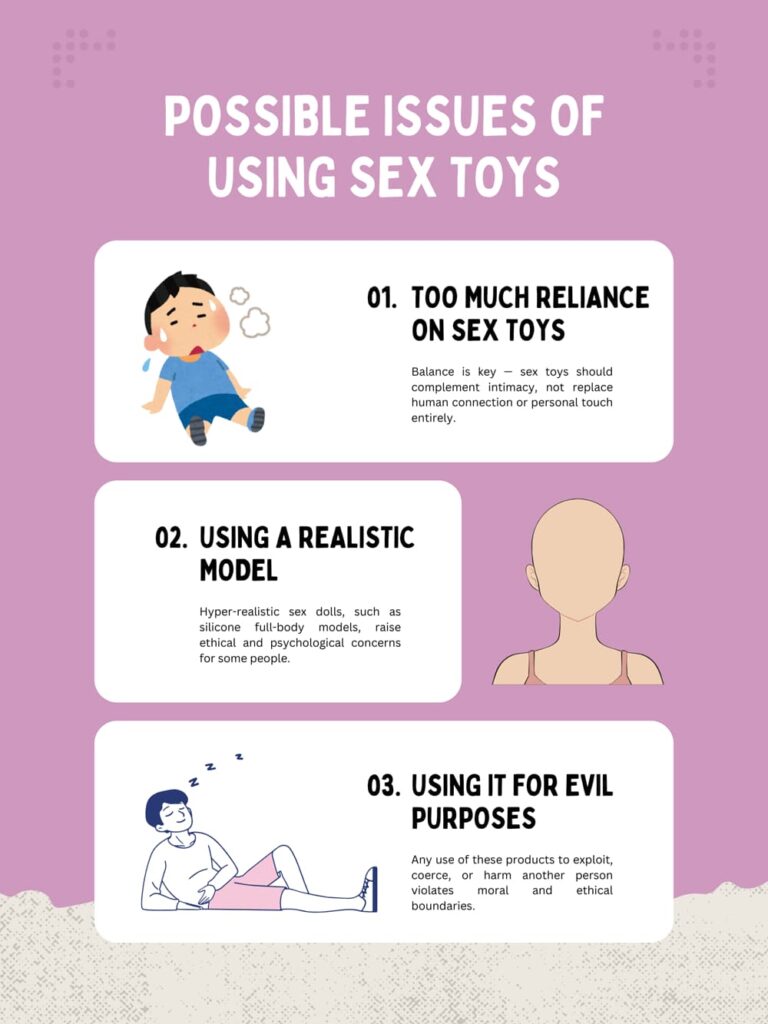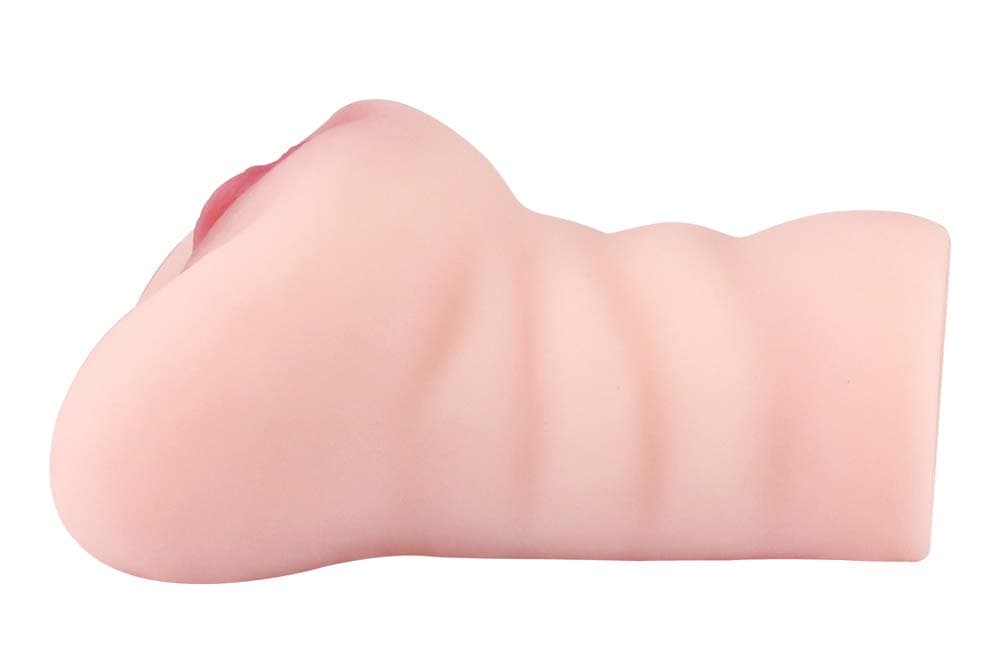Sex toys have been a topic of debate for years, with some people believing they are sinful or immoral while others embrace them as tools for personal pleasure and intimacy enhancement.
If you’ve ever wondered whether using sex toys is wrong, the answer isn’t as black-and-white as it may seem. Instead of relying on external judgments, ask yourself a few key questions to reflect on your values and comfort level.
What Does the Bible Say About Sex Toys?
When it comes to sex toys, many people wonder if the Bible addresses them directly. The simple answer is no — there are no direct mentions of sex toys in scripture. However, the Bible does emphasize themes of companionship, love, and personal fulfillment that can guide thoughtful reflection on the topic.
One key verse to consider is Genesis 2:18, where God says:
It is not good that man should be alone; I will make him a helper comparable to him.
This passage highlights God’s intent for humans to experience companionship, connection, and joy. It suggests that God’s design isn’t rooted in cruelty or restriction, but in fostering happiness and well-being.
While traditional interpretations may focus solely on marriage or relationships, it’s also worth considering how personal pleasure, self-exploration, and intimacy tools — like sex toys — can contribute to happiness and a deeper understanding of one’s body. If these elements enhance your self-love or strengthen the bond with your partner, they can align with the broader values of joy and fulfillment.
Ultimately, whether sex toys are compatible with your beliefs is a personal decision. What matters most is making choices rooted in self-awareness, respect, and your understanding of what brings happiness and wholeness into your life.
The Most Important Question: Is It True, Noble, Right, Pure, Lovely?
When pondering whether sex toys are a sin, a powerful guide comes from Philippians 4:8, which says:
Finally, brothers and sisters, whatever is true, whatever is noble, whatever is right, whatever is pure, whatever is lovely, whatever is admirable—if anything is excellent or praiseworthy—think about such things.
This verse encourages us to focus on what is uplifting and virtuous.
Applying this wisdom to the topic of sex toys can offer a thoughtful perspective. Ask yourself: Does using sex toys help you cultivate truth and honesty about your body’s needs and desires? Are they tools that enhance noble aspects of intimacy, like trust, love, and shared pleasure with a partner? Do they contribute to a pure and positive exploration of your sexuality, free from shame or harm?
If your use of sex toys brings joy, strengthens connections, or promotes self-care in a way that aligns with these values, it may be viewed as lovely and admirable rather than sinful. What matters most is your intention and how it contributes to your personal well-being and integrity. The key is to make choices that resonate with your values and reflect kindness, respect, and authenticity toward yourself and others.
Avoid Sexual Immorality (1 Thessalonians 4:3-6)
In 1 Thessalonians 4:3-6, Paul writes:
It is God’s will that you should be sanctified: that you should avoid sexual immorality; that each of you should learn to control your own body in a way that is holy and honorable, not in passionate lust like the pagans, who do not know God.
This passage is often cited when discussing sexual behavior and morality.
But what does this mean in the context of sex toys? The emphasis here is on self-control, holiness, and honoring your body rather than engaging in lustful or harmful behavior. Sexual immorality isn’t just about actions — it’s about intentions. Using sex toys responsibly and within the framework of respect for oneself and others can be different from the uncontrolled lust warned about in this passage.
It’s important to differentiate between healthy sexual exploration and actions driven by exploitative or destructive desires. If sex toys are used thoughtfully, with a mindset of self-care and intimacy enhancement rather than objectification or excess, they don’t necessarily violate this principle. Ultimately, practicing self-control, respecting boundaries, and making choices that honor your values helps you align your actions with a spirit of purity and responsibility.
Avoid “Youthful Lusts” (2 Timothy 2:22)
In 2 Timothy 2:22, Paul advises:
Flee also youthful lusts; but pursue righteousness, faith, love, peace with those who call on the Lord out of a pure heart.
This verse cautions against giving in to impulsive or reckless desires, often associated with immaturity and a lack of self-discipline.
When considering the use of sex toys, this advice offers valuable guidance. “Youthful lusts” refer to uncontrolled, fleeting pleasures that prioritize physical gratification without thought for consequences or integrity. However, this doesn’t mean that sexual pleasure or exploring intimacy is inherently wrong. The key lies in intention and moderation.
If sex toys are used mindfully — to enhance intimacy with a partner, improve personal well-being, or foster self-understanding — they can align with a balanced, mature approach to sexuality. Responsible use involves self-control, respect, and clear boundaries rather than impulsive indulgence or addiction. Choosing to pursue intimacy in a way that reflects love, peace, and righteousness is different from succumbing to reckless lust.
Ultimately, avoiding youthful lusts is about cultivating thoughtful and ethical sexual choices. Reflecting on your values and using tools like sex toys with a spirit of self-respect and mindful pleasure keeps your actions aligned with maturity and integrity.
Avoid Sexual Abuse
A clear biblical principle that speaks directly against harming others — including any form of sexual abuse — appears in 1 Thessalonians 4:6-7, which says:
“That no one should wrong or take advantage of a brother or sister in this matter. The Lord will punish all those who commit such sins… For God did not call us to be impure, but to live a holy life.”
This passage highlights a core value: respect, consent, and protecting others from harm. Sexual abuse isn’t only a physical violation — it’s a betrayal of trust, dignity, and the fundamental command to treat others with love.
So how does this connect to the conversation about sex toys? It’s simple: their use should never involve coercion, manipulation, or any situation where someone feels unsafe or pressured. Whether solo or shared with a partner, sexual exploration must be rooted in mutual consent, kindness, and emotional safety.
Using sex toys in a respectful, consensual way aligns with the biblical call to honor one another. Anything that harms, exploits, or disrespects someone clearly falls outside this principle.
At the end of the day, healthy intimacy — with or without toys — should always reflect care, respect, and a genuine commitment to another person’s well-being.

Not a Problem for Sex Aid, Married Couples, and Masturbation
When it comes to sex toys, context matters. For many, using these tools can be a natural and beneficial part of enhancing sexual health and intimacy. In fact, within certain frameworks, sex aids are not inherently problematic, especially when used responsibly.
For married couples, sex toys can be a way to explore and strengthen their bond. Many believe that marriage provides a safe, loving space for intimacy, where partners can discover new ways to connect and bring pleasure to one another. If sex toys help couples maintain closeness and enjoyment in their relationship, they can be viewed as a healthy enhancement rather than a moral issue.
Masturbation, although controversial in some religious circles, is increasingly recognized as a normal part of sexual wellness. It allows individuals to learn about their bodies and experience personal pleasure in a private, respectful way. Using sex toys for this purpose can promote better sexual awareness, reduce stress, and even improve sexual satisfaction with a partner.
Ultimately, the question is about intention and how these tools are used. If sex aids contribute to joy, connection, and personal well-being without harm or exploitation, they are less a matter of sin and more a means of honoring one’s sexuality with care and responsibility.
Possible Issues of Using Sex Toys
While sex toys can be beneficial tools for enhancing pleasure and intimacy, it’s important to recognize potential pitfalls that may arise if they are misused. Here are some common concerns to keep in mind:
Too Much Reliance on Sex Toys
One possible issue is becoming overly dependent on sex toys for sexual satisfaction. Relying exclusively on them can diminish sensitivity and reduce the ability to experience pleasure naturally, whether alone or with a partner. Balance is key — sex toys should complement intimacy, not replace human connection or personal touch entirely. Mindful use helps maintain a healthy balance between exploration and natural arousal.
Using a Realistic Model
Hyper-realistic sex dolls, such as silicone full-body models, raise ethical and psychological concerns for some people. These models can blur the line between fantasy and reality, potentially fostering unhealthy attachment or unrealistic expectations for real-world relationships. It’s important to reflect on the impact of such products on your emotional and relational well-being.
Using It for Evil Purposes
Sex toys should always be used with respect, consent, and safety in mind. Any use of these products to exploit, coerce, or harm another person violates moral and ethical boundaries. Additionally, avoid engaging with products or materials linked to unethical practices or non-consensual content. Responsible, respectful use ensures that sexual exploration remains safe, consensual, and aligned with positive values.
By staying mindful of these potential issues, you can enjoy the benefits of sex toys while maintaining balance, integrity, and a healthy approach to sexual wellness.

To Wrap Up
The question of whether sex toys are a sin is complex and deeply personal. It ultimately comes down to your beliefs, values, and how you choose to use them. While religious texts may not directly address sex toys, principles like love, respect, self-control, and personal responsibility provide meaningful guidance.
Sex toys can enhance intimacy, foster self-awareness, and contribute to a satisfying sexual experience when used with intention and balance. However, it’s important to avoid pitfalls like over-reliance, unrealistic expectations, or unethical use. Reflecting on key questions — Is it true, noble, right, pure, and lovely? — helps ground your choices in positive values that align with your sense of integrity and well-being.
Ultimately, embracing sexual pleasure in a respectful, thoughtful way can be a healthy part of self-care and relationships. The most important opinion is your own — guided by understanding, honesty, and a commitment to making decisions that promote happiness and harmony in your life.
References
- Genesis 2:18 – Used in the section “What Does the Bible Say About Sex Toys?”
- Philippians 4:8 – Used in the section “Is It True, Noble, Right, Pure, Lovely?”
- 1 Thessalonians 4:3-6 – Used in the section “Avoid Sexual Immorality”
- 2 Timothy 2:22 – Used in the section “Avoid Youthful Lusts”
- 1 Thessalonians 4:6-7 – Used in the section “Avoid Sexual Abuse”


